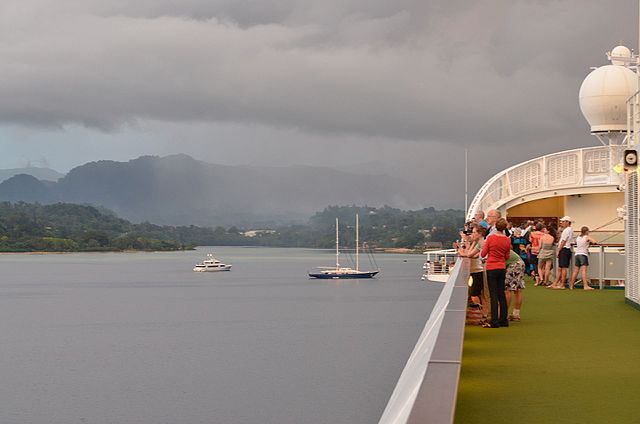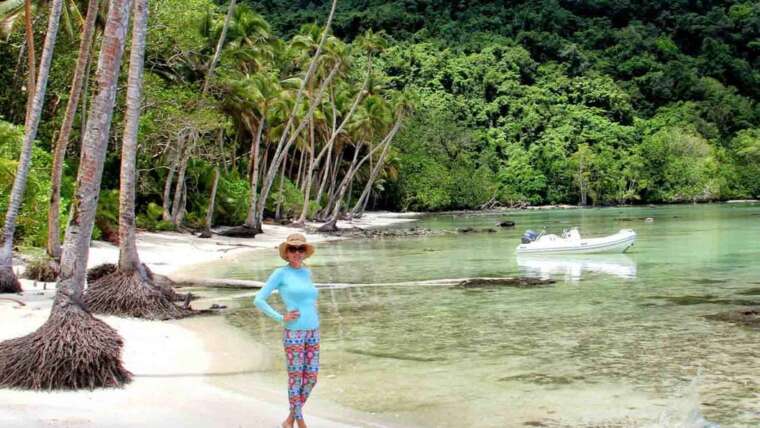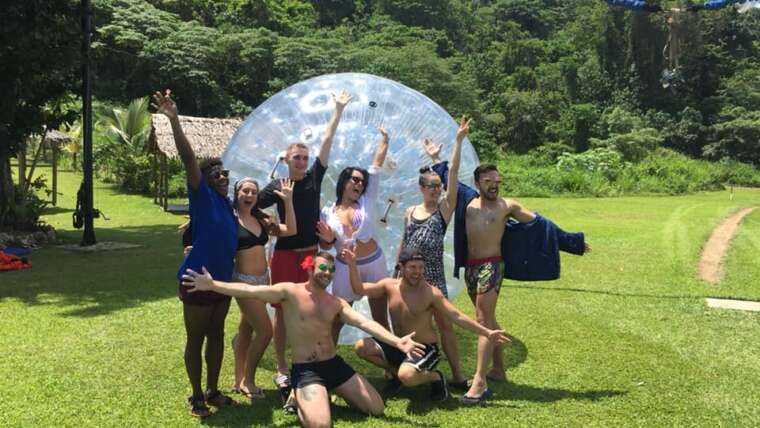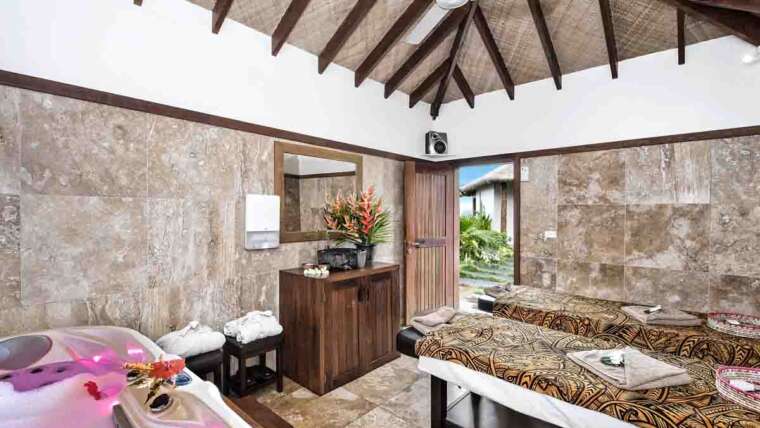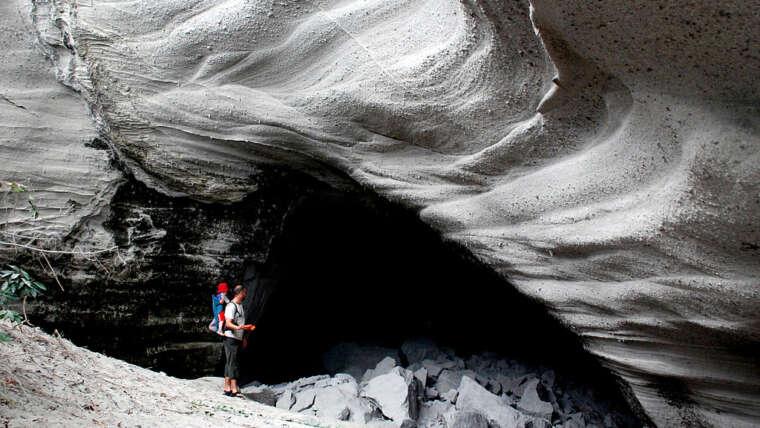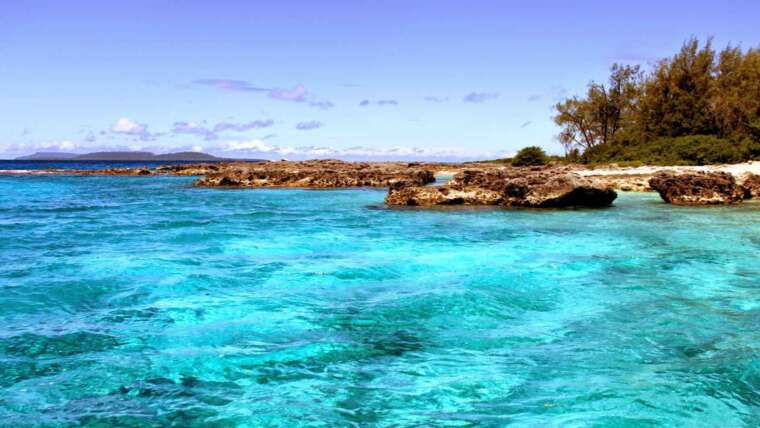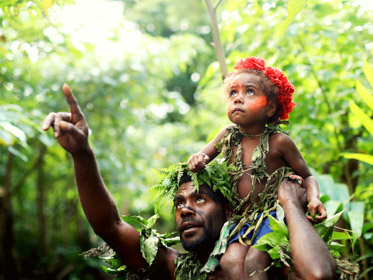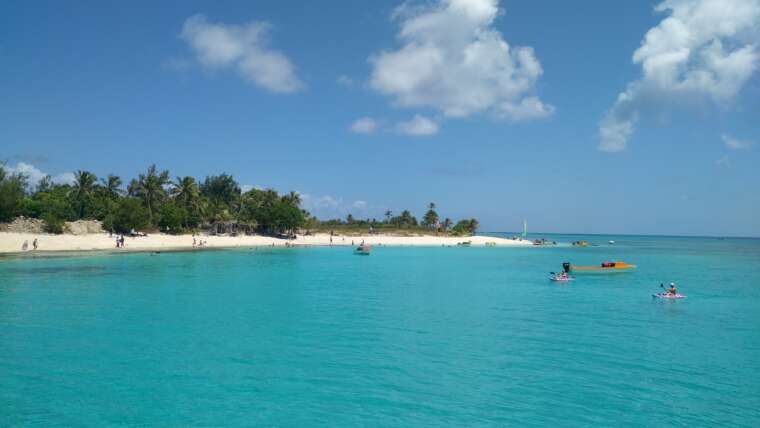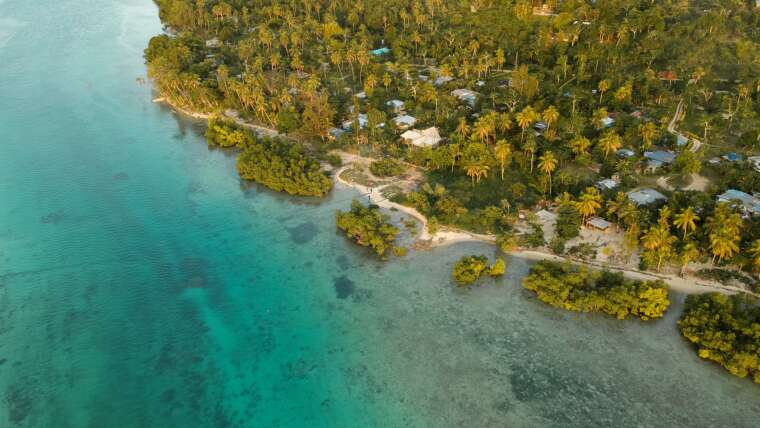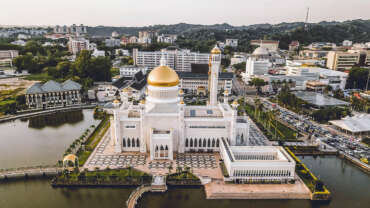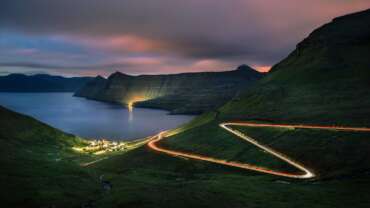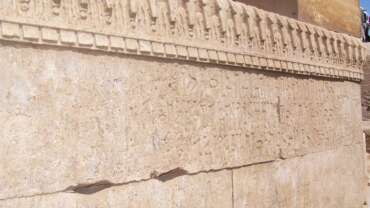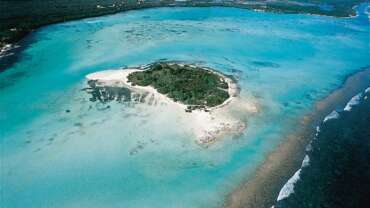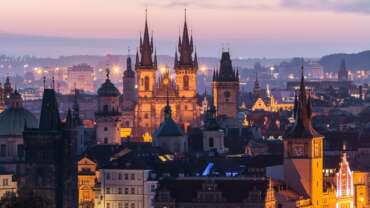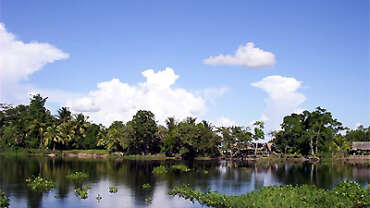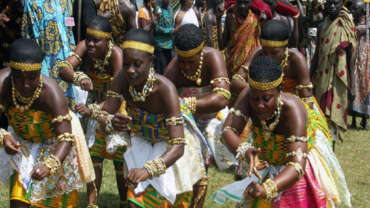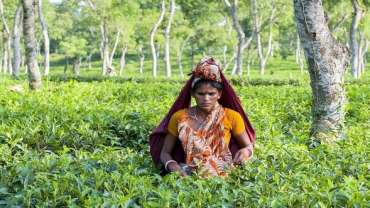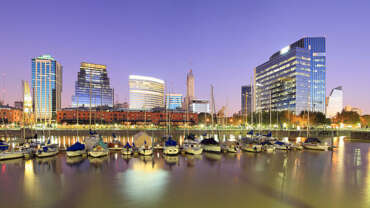Vanuatu - Answer the call!
Vanuatu is a South Pacific Ocean nation made up of roughly 80 islands that stretch 1,300 kilometers. The islands offer scuba diving at coral reefs, underwater caverns and wrecks such as the WWII-era troopship SS President Coolidge. Harborside Port Vila, the nation’s capital and economic center, is on the island of Efate. The city is home to the Vanuatu National Museum, which explores the nation’s Melanesian culture.
Vanuatu is divided into six provinces. Torba province includes Torres and Banks islands. Sanma consists of Espiritu Santo, Malo and surrounding islands. Penama is made up of Pentecost, Ambae and Maewo. Malampa province includes Malekula, Ambrym and Paama. Shefa province is Shepherd islands and Efate where the capital Port Vila is located, the southernmost province Tafea consists of Tanna, Aneityum, Futuna, Erromango and Aniwa.
All provinces have their own signature attractions from Torba’s women’s water music and snake dancers, pristine blue holes, world war 2 relics and champagne beach of Sanma, Penama’s daring land diving ritual, vibrant cultures, black magic, and ancient tribes in Malampa, Shefa being the international gateway is a mix potpourri of culture and gourmet, and the mighty Mount Yasur down south in Tafea province.
Opulent Routes: Crafted Luxury Holidays in Vanuatu
Opulent Routes extends an invitation to indulge in the paradise of Vanuatu through our bespoke luxury holiday packages and meticulously designed Vanuatu tours. Embrace a journey to this Pacific archipelago, where nature’s beauty meets luxurious comfort, creating an unparalleled experience.
Tailored Luxury in Vanuatu
Discover the essence of opulence amidst Vanuatu’s breathtaking landscapes with Opulent Routes’ exclusive luxury holiday packages. Immerse yourself in the pristine beauty of azure waters, lush rainforests, and pristine beaches that define Vanuatu’s allure. Our packages are meticulously curated to offer you an indulgent escape while exploring the cultural richness and natural wonders of this Pacific jewel.
Unforgettable Vanuatu Tours
Embark on a transformative journey through Vanuatu’s diverse islands with our meticulously planned tours. Traverse the vibrant markets of Port Vila, witness the mesmerizing beauty of Tanna’s Mount Yasur volcano, and immerse yourself in the ancient customs of Pentecost Island’s land diving. Each tour is tailored to provide an authentic and immersive experience, ensuring you create lasting memories of Vanuatu’s unique charm.
Immerse in Nature’s Splendor
Opulent Routes emphasizes the harmonious blend of luxury and nature. Experience Vanuatu’s beauty while staying in handpicked accommodations that offer unparalleled comfort and exquisite views. From beachfront villas to eco-friendly resorts nestled in tropical settings, our accommodations complement the natural splendor of the surroundings, providing you with a tranquil retreat.
Discover Vanuatu’s Unspoiled Charms
Escape the ordinary and delve into Vanuatu’s unspoiled charms with Opulent Routes’ expert guides. Whether you seek thrilling adventures or tranquil moments amidst nature, our guides ensure a seamless and enriching journey, introducing you to Vanuatu’s hidden treasures and local traditions.
Book Your Luxurious Vanuatu Getaway Today
Opulent Routes invites you to embark on an unparalleled journey of luxury amidst Vanuatu’s tropical paradise. Revel in the opulence of our tailored holiday packages and tours, crafted to exceed your expectations. Let us create an unforgettable experience, blending luxury and authenticity for your ultimate Vanuatu escape.
Embark on your dream luxury holidays in Vanuatu with Opulent Routes. Book now and immerse yourself in the opulence of this Pacific haven.
History of Vanuatu
Archaeological evidence indicates that, by 1300 BCE, islands in northern Vanuatu had been settled by people of the Lapita culture from Melanesian islands to the west. Since then, there have been successive waves of migrants, including people of Polynesian origin on the southern islands of Aniwa and Futuna (not to be confused with Futuna Island in the French overseas collectivity of Wallis and Futuna). About 1200 a highly stratified society developed in central Vanuatu with the arrival (from the south, according to tradition) of the great chief Roy Mata (or Roymata). His death was marked by an elaborate ritual that included the burying alive of one man and one woman from each of the clans under his influence.
European contact began with the Portuguese explorer Pedro Fernández de Quirós (1606), followed by the French navigator Louis-Antoine de Bougainville (1768) and the British captain James Cook (1774). Cook mapped the island group and named it the New Hebrides. European missionaries and sandalwood traders settled on the fringes of islands from the 1840s, but their impact on the indigenous people was minimal. Significant cultural change occurred only after the 1860s as thousands of ni-Vanuatu men and women who had been indentured to work on plantations in Fiji and New Caledonia and in Queensland, Australia, began to return to their homes. Many established new forms of political influence within the network of Protestant (mainly Presbyterian) missions or successfully competed against European traders and planters in the group. To protect the interests of the mainly British missionaries and mainly French planters, the British and French governments established rudimentary political control with a Joint Naval Commission in 1887.
This arrangement was succeeded in 1906 by an Anglo-French condominium, under which resident commissioners in the capital, Port-Vila, retained responsibility over their own nationals and jointly ruled the indigenous people. This administrative arrangement had only a slight impact, however, on most ni-Vanuatu, whose chief European contact continued to be with either missionaries or planters. The islands became a major Allied base during World War II, when the spectacle of free-spending African American troops inspired the transformation of the Jon (or John) Frum cargo cult on Tanna into an important anti-European political movement. After the war, local political initiatives originated in concern over land ownership. At that time more than one-third of the New Hebrides continued to be owned by foreigners.
Independence was agreed upon at a 1977 conference in Paris attended by British, French, and New Hebridean representatives. Elections were held, and a constitution was drawn up in 1979. Despite an unsuccessful attempt in mid-1980 by Jimmy Stevens, the Na-Griamel Party leader, to establish the independence of the island of Espiritu Santo from the rest of the group, the New Hebrides became independent within the Commonwealth under the name of the Republic of Vanuatu on July 30, 1980; the next month it entered into a defense pact with Papua New Guinea to replace the British and French forces that formerly had defended the islands. In 1982 Vanuatu claimed the uninhabited islands of Matthew and Hunter, about 155 miles (250 km) southeast of Anatom and part of the same archipelago as Vanuatu, in order to expand its exclusive economic zone. France disputed the claim, and the issue continued into the early 21st century without resolution.
The Vanua’aku Pati (VP, “Our Land Party”), headed by Father Walter Lini, formed the first parliamentary majority, with Lini as prime minister. The VP retained slim majorities under Lini’s leadership throughout the 1980s. Lini’s government pursued a nonaligned foreign policy, establishing diplomatic and economic ties with the major capitalist countries as well as with the Soviet Union, China, Libya, and Cuba. In mid-1991, after no-confidence votes from both the VP’s congress and Parliament, Lini was succeeded as party leader and as prime minister by Donald Kalpokas. For the December 1991 general election, Lini and his supporters formed the National United Party (NUP), which won enough seats to form a coalition government with the former opposition, the Union of Moderate Parties (UMP), under the francophone prime minister Maxime Carlot Korman.
Carlot Korman retained the post through a series of coalition governments until the 1995 general election, which initiated six years of unstable parliamentary coalitions with six changes of prime minister, including additional terms for former premiers Carlot Korman and Kalpokas and two brief terms for Rialuth Serge Vohor of the UMP. Several of the administrations (notably Carlot Korman’s and that headed by Barak Sope of the Melanesian Progressive Party in 1999–2001) came apart amid charges of official corruption and criminal activity. Despite the ongoing political turmoil, the government in 1997 adopted a comprehensive reform program funded by the Asian Development Bank, the main objectives of which were to reform the civil service and other public-sector institutions, improve infrastructure, and attract increased foreign investment. Although the frequent changes of government in the late 20th and early 21st centuries indicated a sometimes fragile stability, overall Vanuatu was considered one of the more peaceful and successful countries of the region.
In March 2015, however, Vanuatu suffered a severe setback to its development when Cyclone Pam, a category 5 (highest intensity) tropical cyclone, struck the islands. It wreaked devastation across the archipelago, including the island of Éfaté and Port-Vila on it, which had just completed rebuilding from a 2002 earthquake that had greatly damaged the town’s infrastructure. The storm, which reached wind speeds of up to 185 miles (300 km) per hour, flattened buildings throughout the islands, destroyed crops, caused loss of life, and left thousands of people homeless.
People of Vanuatu
The indigenous population, called ni-Vanuatu, is overwhelmingly Melanesian, though some of the outlying islands have Polynesian populations. There are also small minorities of Europeans, Micronesians, Chinese, and Vietnamese. Roughly three-fourths of the population lives in rural areas, but since independence the urban centres of Luganville and Port-Vila have drawn a significant number of people attracted by better opportunities. More than 100 local Melanesian languages and dialects are spoken; Bislama, an English-based Melanesian pidgin, is the national language and, along with English and French, is one of three official languages.
Some seven-tenths of the population is Protestant, Presbyterians constituting the largest denomination. Other religions include Roman Catholicism, traditional beliefs, and cargo cults.
Economy & Culture of Vanuatu
Economy
Subsistence agriculture has traditionally been the economic base of Vanuatu, together with an elaborate exchange network within and between islands. Economic changes occurred with the development of European plantations in the island group after 1867: cotton was the initial crop, followed by corn (maize), coffee, cocoa beans, and coconuts (for copra). Cattle ranching was instituted later. By the 1880s French planters had reversed the initial British domination of the plantation sector, though they too found it increasingly difficult to compete with ni-Vanuatu producers, who could fall back on subsistence agriculture in times of economic downturn. French hopes of economic hegemony, based on high world prices for copra and the importation of Vietnamese labour in the 1920s, were dashed by the Great Depression of the 1930s. By 1948 most of the copra in the island group was being produced by the ni-Vanuatu themselves, though it was not until the development of cooperatives in the 1970s that they were finally able to assume control of the trade.
Kava, beef, copra, timber, and cocoa are the most important exports; Australia, New Caledonia, Japan, and New Zealand are the main export destinations. Imports—mainly of machinery and transport equipment, food and live animals, and mineral fuels—come principally from Australia, Singapore, New Zealand, and Fiji. Because of its vulnerability to weather and commodity market fluctuations, Vanuatu is working toward supplementing large-scale agriculture with stronger extractive, manufacturing, and service sectors to foster its long-term economic growth.
Since independence, Vanuatu’s tourism and offshore financial services have emerged as the largest earners of foreign income. The growing lucre generated by tourism has attracted the attention of foreign companies seeking to develop land into resorts and other attractions. Although, according to the 1980 constitution, all land in Vanuatu is under ni-Vanuatu customary collective ownership and cannot be sold to foreigners, increasing interest from abroad in the late 20th and early 21st centuries prompted the government to allow land to be leased for 75-year periods. Such leases were often negotiated to the disadvantage of ni-Vanuatu, however; many included, for example, a provision that, at the end of the 75 years, the customary owners could regain their lands only by paying in full the cost of any development. In the early 21st century there was concern that such provisions would mean the permanent alienation of customarily owned lands.
Forestry, important in the islands’ early colonial history but later eclipsed by plantation agriculture, has also grown in importance. Much of the country is forested (including areas of sandalwood and other valuable tropical species). Because the majority of trees felled during the 1980s were exported as unsawn logs, in the early 1990s the government banned exports of roundwood and limited the annual harvest. Earnings from processed wood (mostly sawn on small portable mills) grew as a result, and wood products accounted for a small but significant proportion of exports in the early 21st century. The sale of commercial fishing rights is another important source of foreign revenue, and there is extensive small-scale fishing for local consumption. Mining of manganese ore on Éfaté ended in the 1970s, but later surveys identified a number of remaining deposits there as well as the likely existence of exploitable gold, copper, and petroleum reserves elsewhere in the islands.
On most of Vanuatu’s islands, unpaved roads link coastal settlements; there are few interior roads. Interisland transportation is by boat or airplane. Major airports are located near Port-Vila, near Luganville on Espiritu Santo, and on the northwest side of Tanna. Many smaller airfields are scattered throughout the islands.
Cultural Life
The overwhelming majority of ni-Vanuatu are subsistence agriculturalists, living in small rural villages where activities revolve around the land. The constitution guarantees that land cannot be alienated from its “indigenous custom owners,” or traditional owners, and their descendants. More than an economic resource, land is the physical embodiment of the metaphysical link with the past, and identification with a particular tract of land (expressed by the Bislama phrase man ples) remains one of the fundamental concepts governing ni-Vanuatu culture, although foreign developers have gained control over some land through long-term leases.
On many islands, men gather nightly at their local nakamal (men’s house) to drink kava and communicate with the spirits of their ancestors, whose bones typically are buried nearby. Through magic stones, they attempt to contact and control the spiritual realm they view as all-pervasive. Among the vast majority of rural dwellers, kastom (custom), along with Christianity, continues to guide daily life.
Diving in Vanuatu!
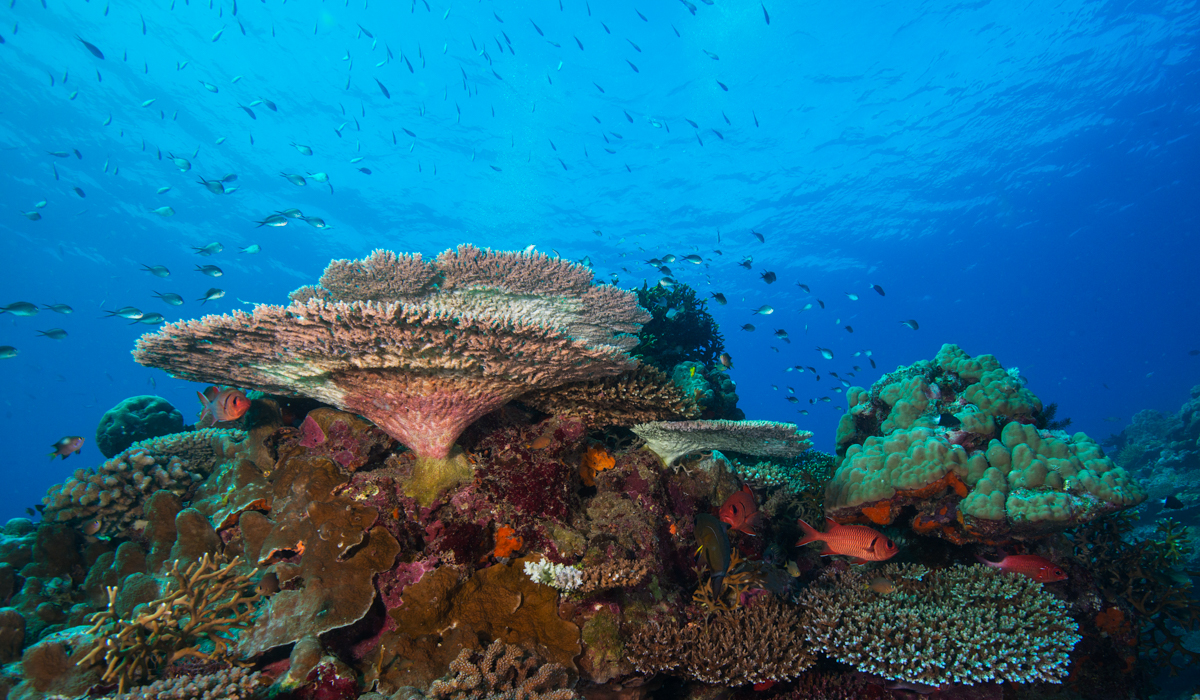
Vanuatu is best known to divers around the world for the wreck of the SS President Coolidge, but as a diving destination, there is much more to Vanuatu’s underwater world. Encircled by, and in common with, its Pacific Ocean neighbours Fiji, New Caledonia and the Solomon Islands, Vanuatu has rich coral reefs, a wealth of wrecks and some great snorkelling too. It is also home to the only underwater post office in the world. (Seriously.)
Huge caverns and drop offs, abundant marine life, beautiful bright corals, giant sea fans and world-famous wrecks all contribute to Vanuatu’s reputation as a diving destination. It is also one of the best places for divers to see dugongs.
The landscape beneath the water mirrors that found above: mountainous terrain with plunging cliffs, grottoes and overhangs, huge caves and intricate interconnecting underwater tunnels and chasms formed by frozen lava.
Diving Vanuatu’s Coral Reefs
Vanuatu is an island archipelago consisting of approximately 82 relatively small islands. The main islands from largest to smallest are; Espiritu Santo, Malakula, Efate (home to the capital Port Vila), Erromango, Ambrym and Tanna. The islands are volcanic in origin and as a consequence, Vanuatu’s shoreline is mostly rocky with fringing reefs and little continental shelf, dropping rapidly into the ocean depths. This gives rise to some exciting diving on reefs and walls, as well as some excellent snorkelling opportunities, particularly on Tanna.
Diving Vanuatu’s Wrecks
Vanuatu became independent as recently as 1980, being jointly administered by France and Britain, and named the New Hebrides prior to that. Being an allied territory, it supported a large American base during WWII and we have them to thank for the wrecks of the SS President Coolidge, the USS Tucker and Million Dollar Point.



